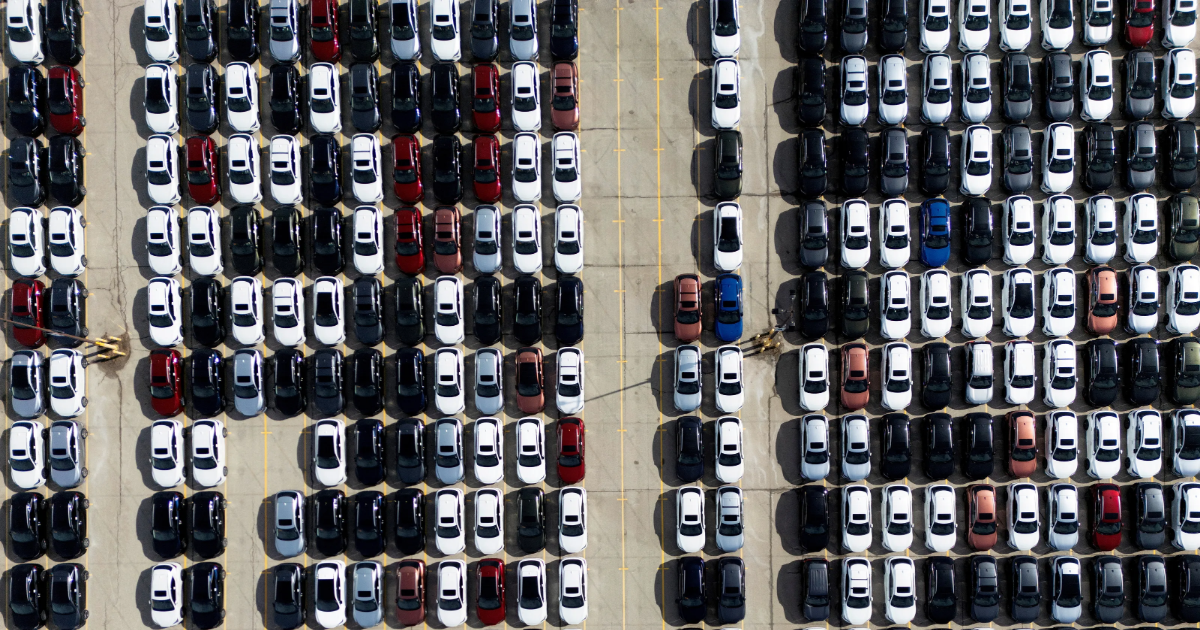- A 25% tariff on imported passenger vehicles, light trucks and some auto parts goes into effect this week.
- Automakers that import more vehicles and auto parts will be affected the most. Toyota, Hyundai and Nissan could all be significantly impacted.
- The tariff is expected to affect consumers “across the board,” including new and used cars, maintenance costs, and insurance premiums.
A new tariff on imported vehicles and auto parts is set to go into effect this week.
President Donald Trump announced last week that he will impose a 25% tariff on imported passenger vehicles, light trucks and some auto parts.
After signing the order last week, Trump said the auto tariff would go into effect on Wednesday, April 2 and begin to be collected on Thursday, April 3.
Trump dubbed April 2 as “Liberation Day” due to the host of other tariffs set to be rolled out.
“We’re going to charge countries for doing business in our country and taking jobs, taking our wealth, taking so much out of our country,” he said before signing an executive order last week.
Need a break? Play the USA TODAY Daily Crossword Puzzle.
Here’s what to know about Trump’s auto tariff taking hold this week.
Which vehicles, auto parts will be affected by the tariff?
The 25% tariff affects imported passenger vehicles, including sedans, SUVs, crossovers, minivans and cargo vans; and light trucks. Key automobile parts, like engines, transmissions, powertrain parts and electrical components also fall under the tariff.
Importers protected by the U.S.-Mexico-Canada Agreement will only be subject to the tariff for the foreign parts that make up their vehicles. Signed in 2020, the U.S.-Mexico-Canada Agreement replaced the North America Free Trade Agreement, more commonly known as NAFTA. The agreement, like NAFTA, supports mutually-beneficial trade among the three countries.
Which automakers will be affected the most?
Automakers that import a higher percentage of vehicles and auto parts will be affected the most.
Toyota, Hyundai and Nissan import more than 50% of their vehicles and General Motors imports about 49%, Bank of America research analyst John Murphy shared in a note last week.
Ford will fare a bit better, as the automaker imports about 20% of its vehicles, Murphy added. As for Tesla, which manufactures its cars in the U.S. and is run by Trump’s right-hand man Elon Musk, the company is also expected to be affected less.
How will auto tariffs affect consumers?
Massive tariff increases could be “highly disruptive” to North American vehicle production, Cox Automobile Chief Economist Jonathan Smoke said during a sales forecast call last week. He added that consumers may feel a disruption by mid-April, as some companies may hike up their prices.
As for where consumers may feel the effects, prices are expected to increase “across the board,” Ivan Drury, director of insights at automobile research site Edmunds. This includes new and used cars, maintenance costs and insurance premiums, as accidents involving new parts would be more costly.
More: Looking for a car that’s truly ‘made in America’? Good luck finding one.
As of February, a new car was estimated to cost about about $48,000, Kelley Blue Book reported. Murphy said car prices could go up as much as $10,000 but around $4,500 is more likely.
Contributing: Bailey Schulz, Bart Jansen and Joey Garrison, USA TODAY
Greta Cross is a national trending reporter at USA TODAY. Story idea? Email her at [email protected].
